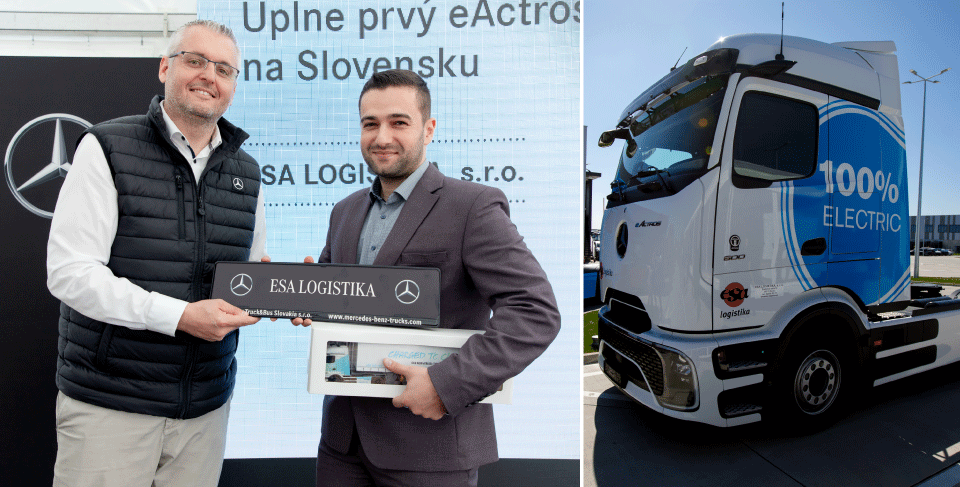Deploying Our First Electric Truck – the Mercedes-Benz eActros 600
ESA logistika is launching its first fully electric tractor unit into regular operation. The vehicle is a Mercedes-Benz eActros 600, which the company took delivery of from representatives of Daimler Truck & Bus during the first week of April at its warehouse in Senec near Bratislava. It is the very first tractor of this type delivered in Slovakia and one of the first five currently in operation across Europe.
“This marks a symbolic breakthrough in the field of heavy freight transport, paving the way toward more sustainable long-distance logistics. The vehicle will be used for domestic goods distribution from ESA logistika’s distribution center in Senec, with an expected range of 500 kilometers comfortably covering the entire planned daily route. This ensures optimal use without the need for additional charging during the day. We’ve found an application scenario that perfectly suits this type of vehicle,” says Erik Maťaš, Managing Director of ESA logistika Slovakia.


The truck will be charged at ESA logistika’s Senec facility, using electricity generated by a photovoltaic system installed on the warehouse roof. This will significantly reduce emissions associated with electricity production and lower charging costs. “We expect that our in-house photovoltaic system will cover at least half of the truck’s energy consumption,” adds Michal Čambal, Fleet & Facility Manager at ESA logistika. As a result, the vehicle is expected to save over 122 tons of carbon dioxide emissions annually—representing a 96% reduction compared to a comparable diesel model.
The impressive range of the Mercedes-Benz eActros 600 is made possible by a 600 kWh battery pack. It also supports high-power charging of up to one megawatt, enabling very fast recharging and allowing for rapid turnaround between routes. The vehicle’s future utilization will thus also depend on the availability of fast-charging stations. For now, charging will be limited to the Senec site, but longer routes would require en-route charging—an area where the vehicle’s rapid charging capability becomes a major advantage. The company expects an average energy consumption of 103 kWh per 100 kilometers.
The tractor unit, with its distinctive aerodynamic cab design, is equipped with a full suite of advanced safety and driver assistance systems. These enhance driver comfort and safety and allow for efficient operation with minimal risk.
“Given the environmental focus of both our company and the client whose goods this truck will transport, deploying an electric vehicle is a significant step forward in meeting our shared sustainability goals,” concludes Erik Maťaš.



